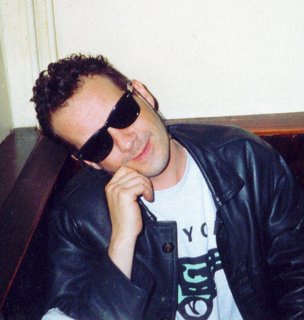3.1 Reflect upon your own past and current learning experiences. How were you taught, which theoretical perspectives have you experienced? (750 words)
I was born in the 1950s and my educational experiences were typical for someone from my class and background from that time. I went to a working class primary school, which I loved, and then to a grammar school, which I hated. The former gave me intellectual aspirations and the latter crushed them completely, removing any joy I might have had in formal learning for many years. I left school at 16 and went through a succession of uninspiring jobs until at 24 I decided to return to education.
My primary school was an Edwardian-built mixed infants and junior school whose architecture matched the red-brick Edwardian terraces that surrounded it in an area that might best be described as ‘poor but respectable’ working class. Its teaching methods were highly traditional and based on the ‘3 Rs’ with a considerable amount of rote learning (e.g. times tables, the alphabet).
The dominant theory supporting my teachers’ activities might be broadly described as behaviourist. Good conduct and academic success were rewarded with gold stars and position in class, praise from the teacher, added responsibilities, and more freedom to learn by developing one’s own interests ( top flight students were given greater access to the small school library when the ‘dunces’ were learning their times tables etc). There were no physical punishments for the failure to learn, but neither was there any accommodation for different needs – if one didn’t perform one was relegated to a lower form and/or a place at the back of the class. Exams and tests figured highly and status was often all that was at stake.
In addition to the behaviouristic approaches my teachers also adopted what I refer to as the ‘Von Ryan’s Express/How Green is My Valley’ model of pedagogy. That is, teachers working in poor or deprived areas in that period tended to focus their efforts on a small number of pupils whom, they believed, had the potential to slip the bounds of their class destiny, get a scholarship and go on to greater things. If one of them got away, then the effort was deemed worth it.
If you fell into that group, then your learning experience tended to be based more on cognitive principles. You were allowed to learn by doing and encouraged to follow your own path within the general framework. I, for example, learned about statistics and graphs by being placed in charge of the school weather station. The school provided equipment and the teachers a framework of support and encouragement. I played Scrabble and Monopoly in French before I did in English, because a number of Francophile teachers translated their love into French lessons for the under-8s. For my relatively privileged group, our education was an exercise in emancipation from class destiny and social determinism that Paulo Friere would have admired.
Inevitably, I passed the 11 plus and from that point it all went downhill. Park High School for Boys was a leftover from another era, when grammar schoolboys played rugby and took a lot of cold showers. Its primary goal was to produce solid and stolid members of the lower middle class, a proportion of whom studied science and engineering at university and the rest of whom got steady jobs in the middle management tiers of the civil service and the private sector. A small minority would also become teachers and take their place in schools like Park High.
The approach to learning was crudely behaviouristic – academic failure was punished brutally by physical or psychological means. Corporal punishment was routinely administered in a variety of forms. A failure to conjugate a Latin verb could result in a thwack with a gym-shoe. The inability to recite Newton’s laws of motion on demand would receive a blow to the head from a wooden chalk duster. Homework marks were read out in assembly every second Friday. 70 percent was the minimal acceptable grade. Defaulters knew who they were because their names were not read out. The anonymous ones could be seen lining up after assembly outside the Deputy Head’s office to receive a more personal form of punishment for their intellectual failures.
Rewards only came if one survived to the 6th Form when one became a member of a privileged, university-bound elite who bestrode the school corridors and quadrangles like colossi, confident in their privileges and the power they had over lesser members of the school.
By 13 I had given up all hope of a genuine education and concentrated on survival until it was time to leave. I put in sufficient effort to avoid punishment and pass exams, but the real learning took place outside school in the public libraries. For many years I became, like Sartre’s character in Nausea, an autodidact, unsystematically sucking up knowledge by the shelf-load without a clear idea of how to evaluate it or understand it critically.
These experiences influence my current approach to teaching and learning far more than anything I have learned subsequently, if only because they tell me what not to do in my own practice






